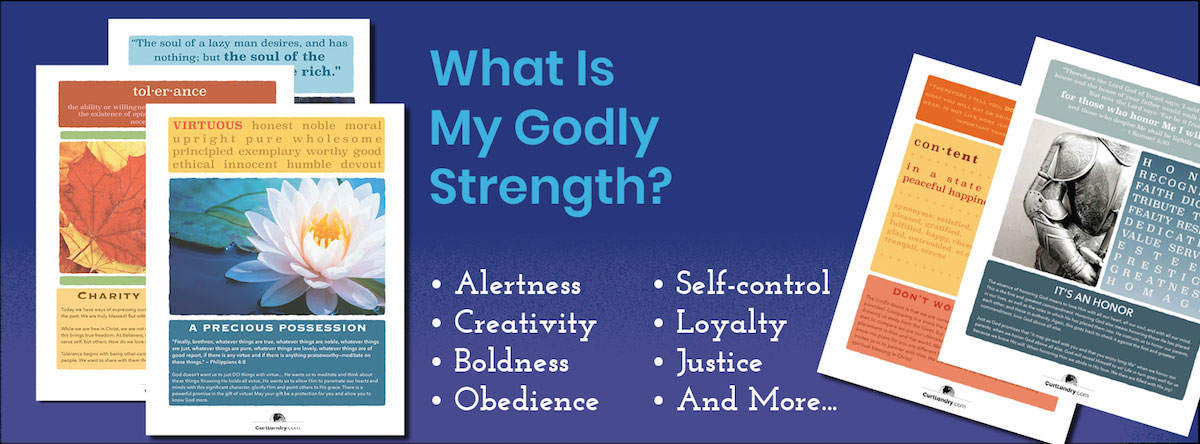How to Leave a Legacy that Lasts: Pass on Your Hope to Future Generations

End-of-life plans are a subject rarely comfortable to discuss, but are possibly the most significant conversation to have with your spouse, children, and loved ones. Unfortunately, bringing this subject up to your loved ones can conjure up fear, doubt, and even greed in some cases.
According to research by the Institute for Healthcare Improvement[i]…
- 90% of people say that talking with their loved ones about end-of-life care is important…
- …but only 27% actually
- 82% of people say its important to put their wishes in writing…
- …but only 23% actually
There is undeniable hesitation regarding the topic, but worth considering what legacy you want to leave to future generations after you have gone home to be with your Heavenly Father.
As he came from his mother’s womb, naked shall he return, to go as he came; and he shall take nothing from his labor which he may carry away in his hand.”—Ecclesiastes 5:15
“For we brought nothing into this world, and it is certain we can carry nothing out.”—1 Timothy 6:7
The Lord’s wise words tell us:
- That we can’t take our fortune with us
- It is unwise to hold on to wealth in ungenerous ways
What does the Bible say about money management?
The Parable of the Talents depicts God’s will for how we are to be responsible stewards and to care for His Kingdom. The parable shows the three men the importance of understanding and applying God’s instruction to His money.
First, we must realize it is not our wealth; it belongs to God. He has entrusted you to be a wise “investor” of His property.
Secondly, we must understand God’s character. He wants you to understand and apply His instruction. His instruction shows us that He wants us to work.
“Then he who had received the five talents went and traded [work] with them, and made another five talents. And like wise he who had received two gained two more also.”—Matthew 25:16-17
Thirdly, we are accountable for what we have been given. God gives us a choice; we can either accept Him or reject Him. After accepting Him as our Lord and Savior, He grants us choices. We can choose to follow His instruction, or not… ultimately determining whether we are blessed, or not.
“ If you keep My commandments, you will abide in My love, just as I have kept My Father’s commandments and abide in His love. These things I have spoken to you, that My joy may remain in you, and that your joy may be full.”—John 15:10-11
How we handle His property is a way of worship and honor. He desires to bless us while teaching us. Trust and confidence motivate the first two stewards in the parable, and they receive 100% profit in return… thus they are invited to enter into their Master’s joy.
“His lord said to him, ‘Well done, good and faithful servant; you have been faithful over a few things, I will make you ruler over many things. Enter into the joy of your lord.’”—Matthew 25:23
On the flip side, the third steward was held captive to fear, not only wasting the talent but an opportunity.
“And I was afraid, and went and hid your talent in the ground. Look, there you have what is yours.”—Matthew 25:25 (emphasis added)
Jesus’ Parable of the Talents is a mirror to His design from the beginning. God placed Adam in the garden to work and care for the ground, to harness its potential, and multiply. Ask yourself, “Where am I sowing my talents? What kind of return will there be?”
One last note… It is necessary to examine the rest of Chapter 25 in Matthew to understand what to do next. Jesus goes on to say…
“…for I was hungry and you gave Me food; I was thirsty and you gave Me drink; I was a stranger and you took Me in… And the King will answer and say to them, ‘Assuredly, I say to you, in as much as you did it to one of the least of these My brethren, you did it to Me.’”—Matthew 25:35, 40 (emphasis added)
Do you now the “brethren” to whom Jesus is referring? The Jews. While caring for those in need can be applied to anyone, anywhere, He is specifically referencing the Jewish nation here.
How to apply the Parable of the Talents
The magnificence of God’s Word is that it is alive and active, applicable to situations in our lives today.
>>>Do you want real-life application from the Bible? <<<
The question we are specifically addressing here is how to apply this biblical principle of the parable to our end-of-life plans.
Those who long to honor God and leave a legacy that lasts, often find themselves at a crossroads with their “talents” in their older years. It is true that God says, “A good man leaves an inheritance to his children’s children, but the wealth of the sinner is stored up for the righteous” (Proverbs 13:22).
But there is more to consider as to where to sow, than to simply leaving all your inheritance to your children and grandchildren. With every decision you make and with every word you speak, you are leaving a legacy and sowing seeds. You are teaching your children where your heart is and where their hearts should be as they go through life?
Leaving an inheritance to your children is an important choice that comes with much responsibility.
Consider this…
Do your children need the finances?
“An inheritance gained hastily at the beginning will not be blessed at the end.”—Proverbs 20:21
The transfer of wealth without wisdom is wasted. If we don’t sow into wise places, it is as if the seeds fall on rocky soil.
Do you sow into ‘wise’ soil? Ultimately the sowing should be about furthering God’s Kingdom. Interestingly enough, when looking at the Parable of the Talents, the Master doesn’t tell the servants exactly where to invest, but He does teach them that when they invest in the right places, there is a 100% return.
Not only that, but He shows them there is joy in the work!
Are you leaving an inheritance to promote joy of the Lord’s work? The Bible teaches that whatever we do, we need to have an eternal perspective, so that our focus is on God’s Kingdom above our own.
What is your kingdom? Satan tempts us constantly with distractions that are stealing the joy from the gifts from God such as finances, family, and health. It’s time we put our gifts in places the enemy can’t touch.
“Do not lay up for yourselves treasures on earth, where moth and rust destroy and where thieves break in and steal; but lay up for yourselves treasures in heaven, where neither moth nor rust destroys and where thieves do not break in and steal. For where your treasure is, there your heart will be also.”—Matthew 6:19-21
Are you teaching your children about hard work and opportunities to trust God? Unfortunately, in today’s society, younger generations have a misconception about work. When parents, grandparents, etc. provide the gifts without the lessons, it plants seeds that produce rotten fruit later.
This dilemma, of course, is not thought of at the time, yet there are still unwanted consequences when wisdom and biblical instruction is not applied. When we understand the importance of the relationship between “talents and wisdom” we can leave a more significant legacy to our children, the legacy of trusting in the Lord to provide, understanding His instruction, applying biblical principles to everyday life, and being part of watching God’s hand at work. This legacy far outweighs anything man can leave, because it is God who is doing it.
Decisions about where to sow, invest, and leave your lasting legacy can go around and around within your mind. But the Bible says that you have been given the mind of Christ. Think of your money as God’s, where does He want you to leave your inheritance?
Many today are realizing the widespread blessings that their inheritance has provided for the people of Israel. They have decided to sow into something that truly multiplies, that is touched by God, and that furthers His Kingdom. Teaching your children to do the same leaves a legacy for their children.
The legacy you leave your children when sowing into the ministry teaches godly character, wisdom, and trust for generations to come… long after you’ve gone to heaven.
Prayerfully consider leaving an end-of-life donation that will speak to God’s chosen people, Israel. When leaving the inheritance God has entrusted to you to the ministry, you provide a way for others to step into God’s inheritance, becoming a part of His great family.

